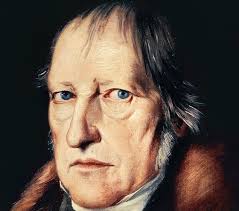Robert Pippin at The Point:
 Although the nineteenth-century philosopher G.W.F. Hegel is known as a defender of bourgeois society and so of what came to be known after him as capitalism, I think the evidence suggests that his answer to these questions is far more negative than is widely recognized, and this in a distinctive sense that remains relevant today. I want to try to explain this counterintuitive claim. Hegel, of course, writing in Germany in the early nineteenth century, had no idea of the full scope of the industrial capitalism to come, but he certainly saw that a largely agricultural and artisanal/craft/predominantly homebound economy was changing into a wage-labor economy, and his worries about that alone are apposite. What makes him especially worth returning to in our present circumstances, however, is that while material inequalities and the resulting systematic unfairness were important to him, Hegel’s principal focus was on the experiences of ourselves and others inherent in the ordinary life required by such a productive system. These issues are often misleadingly marginalized as “psychological,” but as recent events have shown, they are crucial to the possibility of the social bonds without which no society can survive.
Although the nineteenth-century philosopher G.W.F. Hegel is known as a defender of bourgeois society and so of what came to be known after him as capitalism, I think the evidence suggests that his answer to these questions is far more negative than is widely recognized, and this in a distinctive sense that remains relevant today. I want to try to explain this counterintuitive claim. Hegel, of course, writing in Germany in the early nineteenth century, had no idea of the full scope of the industrial capitalism to come, but he certainly saw that a largely agricultural and artisanal/craft/predominantly homebound economy was changing into a wage-labor economy, and his worries about that alone are apposite. What makes him especially worth returning to in our present circumstances, however, is that while material inequalities and the resulting systematic unfairness were important to him, Hegel’s principal focus was on the experiences of ourselves and others inherent in the ordinary life required by such a productive system. These issues are often misleadingly marginalized as “psychological,” but as recent events have shown, they are crucial to the possibility of the social bonds without which no society can survive.
more here.
